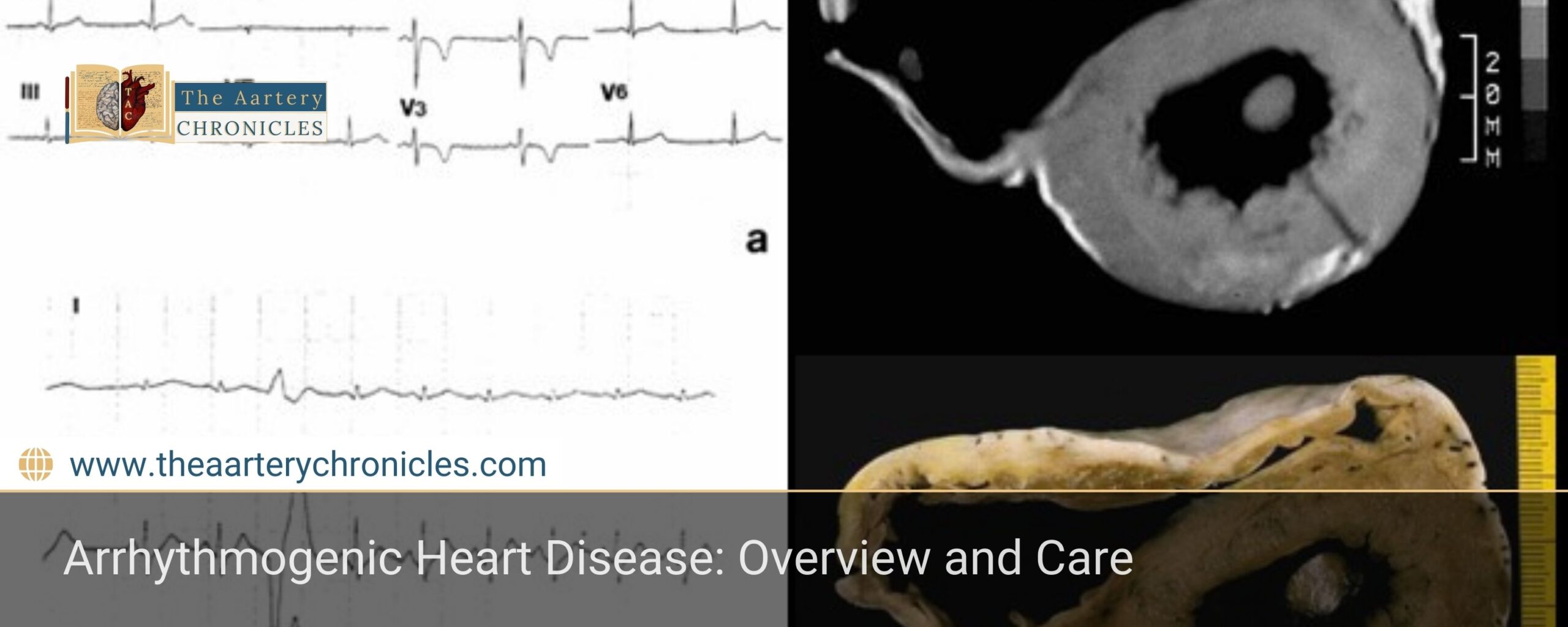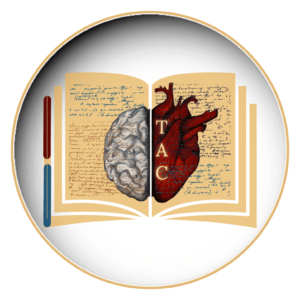

Arrhythmogenic Heart Disease: Overview and Care
Introduction
Arrhythmogenic heart disease is a group of heart conditions that cause arrhythmias, or abnormal heart rhythms. These conditions, often inherited, can seriously affect the heart’s function, with consequences ranging from simple palpitations to life-threatening conditions such as sudden cardiac death. In this article, we will explore the main types of arrhythmogenic heart disease, their causes, symptoms, diagnostic options, and available treatments.
Types Of Arrhythmogenic Heart Disease
Arrhythmogenic heart disease can manifest itself in different forms, depending on its origin and the specific characteristics of the arrhythmias. The most common include:
1. Arrhythmogenic Right Ventricle Dysplasia (ARVD)
One of the most well-known forms of arrhythmogenic heart disease is arrhythmogenic right ventricular dysplasia (ARVD). This disease is characterized by the replacement of the right ventricle’s muscle tissue with fatty and fibrous tissue, causing potentially fatal ventricular arrhythmias. The disease is often inherited and occurs predominantly in young athletes.
2. Hypertrophic Cardiomyopathy
Hypertrophic cardiomyopathy is a condition in which the walls of the heart, especially those of the left ventricle, become abnormally thickened. This thickening can cause obstructions to normal blood flow and cause arrhythmias. This form is also always genetic and is the main cause of sudden death in young people.
3. Dilated Cardiomyopathy
In dilated cardiomyopathy, the heart’s ventricles dilate and weaken, reducing their ability to pump blood. This fatigue can lead to both atrial and ventricular arrhythmias. Although it can be genetic in origin, this form of cardiomyopathy can also be caused by viral infections, toxins, or other medical conditions.
4. Long QT Syndrome
Long QT syndrome is an electrical disorder of the heart in which repolarization of the ventricles is delayed. This delay can predispose to dangerous ventricular arrhythmias and, in some cases, sudden cardiac death. It can be congenital or acquired, the latter often caused by drugs or electrolyte imbalances.
Causes Of Arrhythmogenic Heart Disease
The causes of arrhythmogenic heart disease are often multifactorial and include a combination of genetics, environmental factors, and other underlying medical conditions. Here are the main causes:
1. Genetic Factors
Many arrhythmogenic heart diseases are inherited, passed down through genetic mutations that affect the structure and function of heart cells. Mutations can affect genes responsible for producing proteins that are crucial to the heart’s functioning, such as those involved in electrical conduction or heart muscle contraction.
2. Infections And Inflammations
Some arrhythmogenic heart diseases can result from viral or bacterial infections that affect the heart, causing inflammation (myocarditis) and damaging heart tissue. This damage can disrupt the normal heart rhythm.
3. Toxins And Substances
Exposure to certain toxins, such as alcohol, drugs, or some medications, can damage the heart and cause arrhythmias. Abuse of substances such as cocaine is also a known risk factor for developing arrhythmogenic heart disease.
4. Electrolyte Imbalances
Imbalances in the levels of electrolytes in the blood, such as potassium, calcium, or magnesium, can interfere with the heart’s electrical conduction, leading to arrhythmias.
Symptoms Of Arrhythmogenic Heart Disease
Arrhythmogenic heart disease can present a wide range of symptoms, which vary depending on the severity of the condition and the specific type of arrhythmia. The most common symptoms include:
- Palpitations: Sensation of heartbeats being irregular, too fast or too slow.
- Syncope: Unexpected fainting or loss of consciousness, often related to a sudden drop in blood flow to the brain.
- Dyspnea: Difficulty breathing, which may be particularly noticeable during physical activity.
- Chest pain: Sensation of pressure or pain in the chest, which may be a symptom of ischemia or infarction.
- Fatigue: Persistent feeling of tiredness, even after minimal effort.
- Vertigo: A feeling of dizziness or unsteadiness, which may precede fainting.
Treatments For Arrhythmogenic Heart Disease
Treatment of arrhythmogenic heart disease varies depending on the type and severity of the condition, as well as the risk of complications such as sudden cardiac death. Treatment options include:
1. Anti-arrhythmic Drugs
Anti-arrhythmic drugs are often the first therapeutic approach to control arrhythmias. These drugs help stabilize the electrical activity of the heart and prevent arrhythmic episodes.
2. Implantable Cardiac Defibrillator (ICD)
For patients at high risk for life-threatening ventricular arrhythmias, an implantable cardioverter defibrillator (ICD) may be recommended. This device continuously monitors the heart rhythm and, if necessary, delivers an electrical shock to restore a normal rhythm.
3. Catheter Ablation
Catheter ablation is a minimally invasive procedure that uses radiofrequency energy to destroy small tissues in the heart that cause arrhythmias. It is especially effective for atrial arrhythmias.
4. Heart Transplant
In serious cases, when the heart is extremely damaged and other therapies are not effective, a heart transplant may be necessary.
5. Lifestyle Modifications
Lifestyle modifications can have a significant impact on the management of arrhythmogenic heart disease. This includes:
- Avoid alcohol and drug abuse
- Managing Stress
- Adopting a heart-healthy diet
- Exercise regularly, but under medical supervision
Conclusion
Arrhythmogenic heart disease is a complex group of heart conditions that can have serious consequences, including sudden cardiac death. However, with timely diagnosis and appropriate treatment, these conditions can be effectively managed and patients’ quality of life can be significantly improved. Knowledge of the symptoms, causes, and treatment options is essential to address these conditions proactively.









